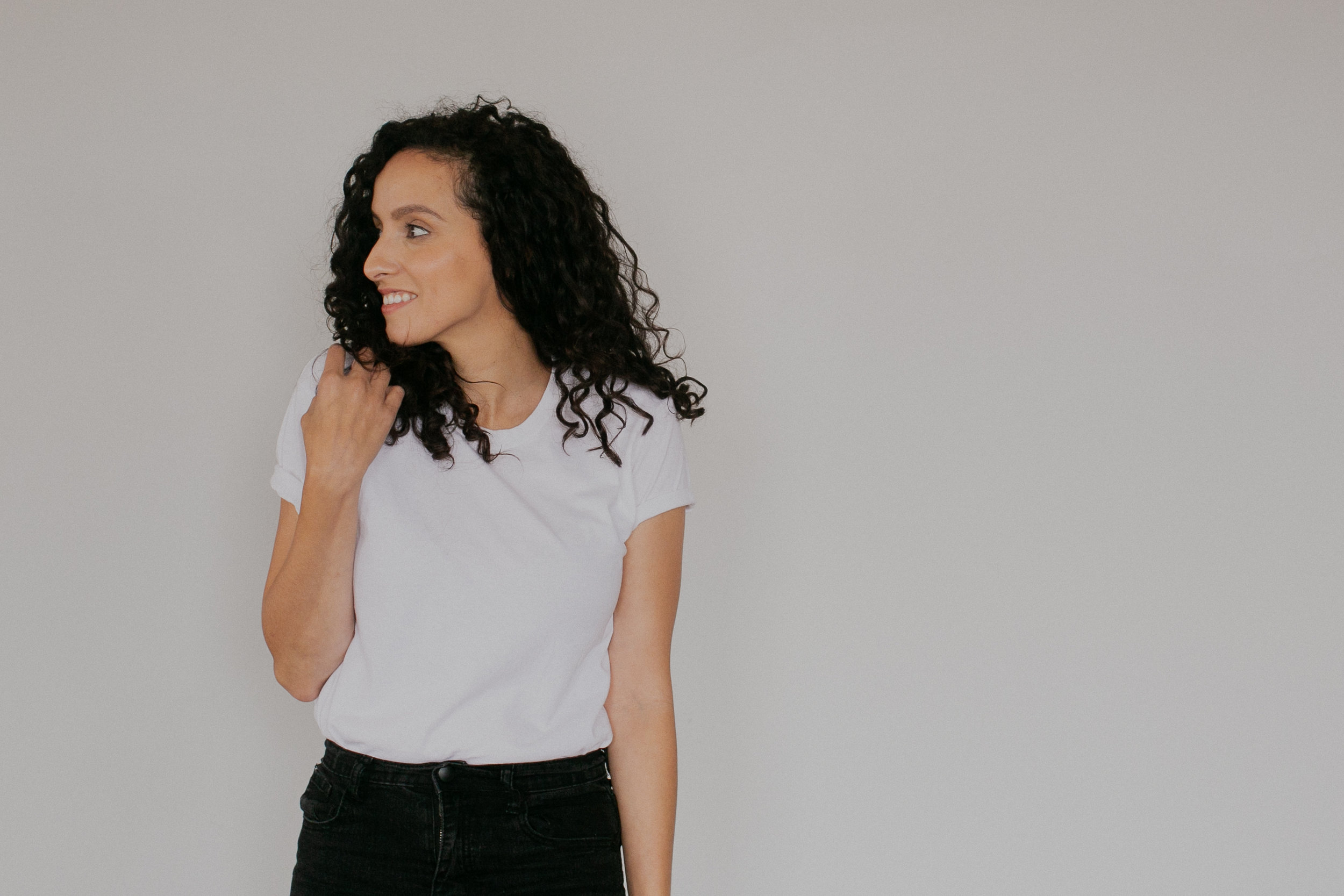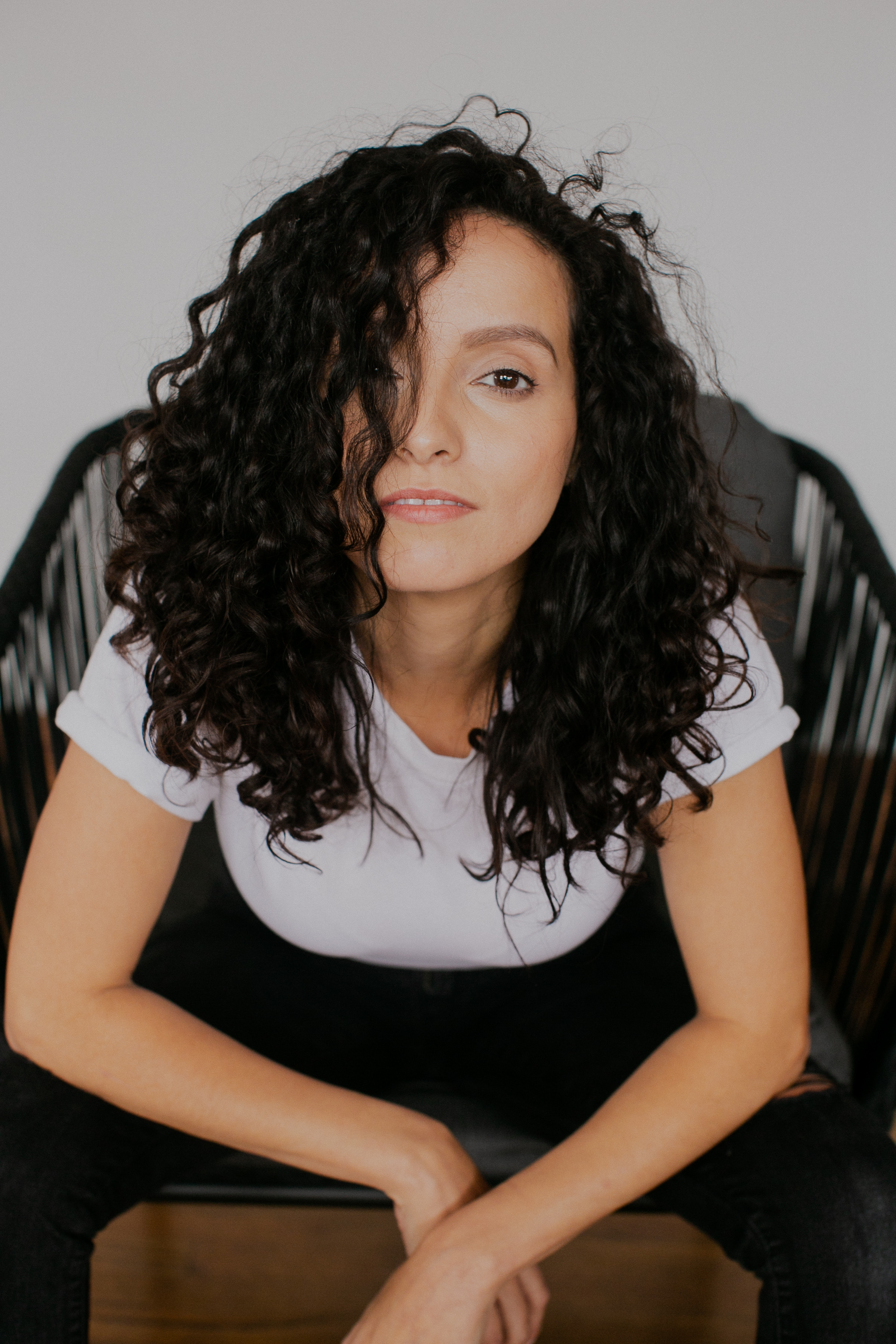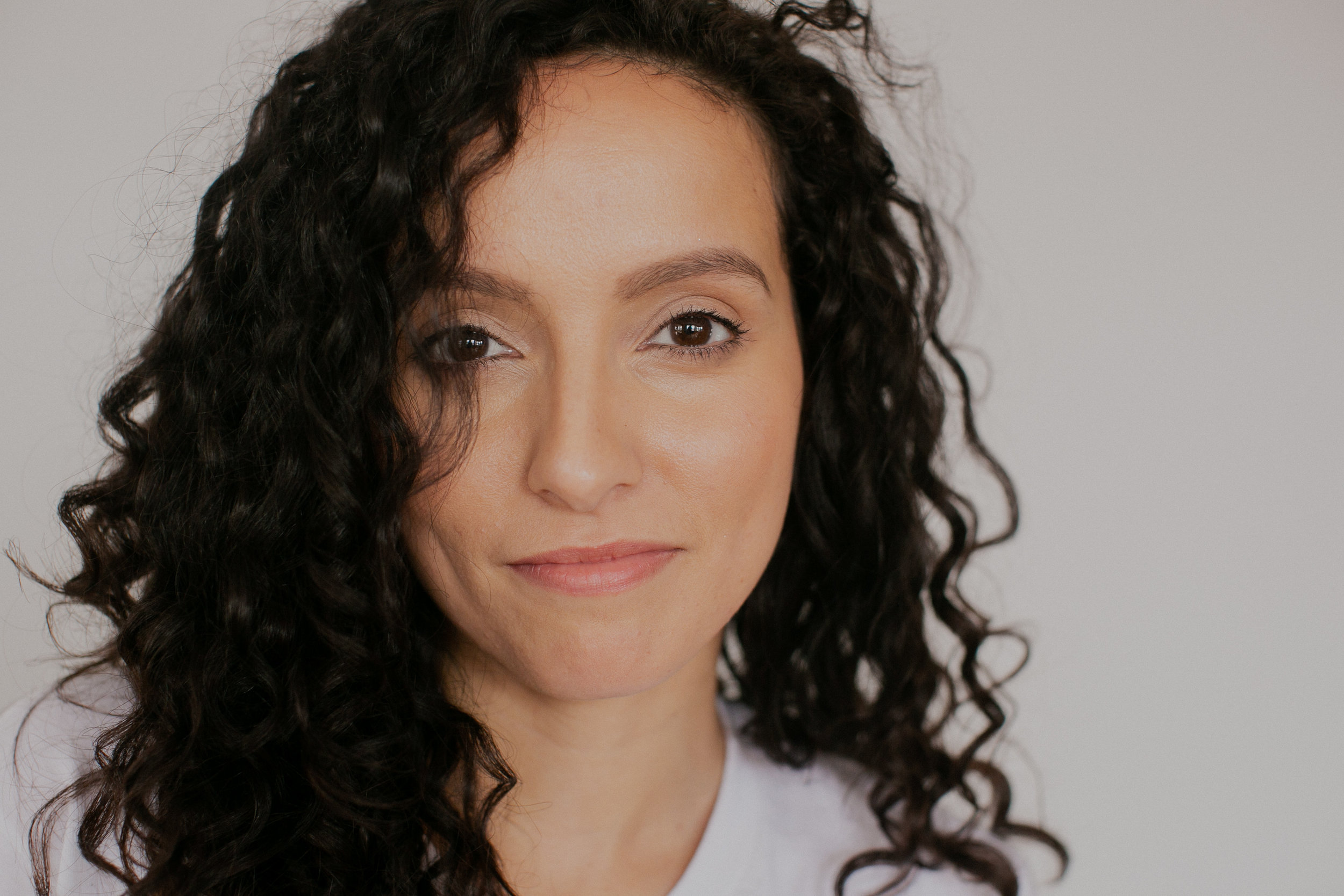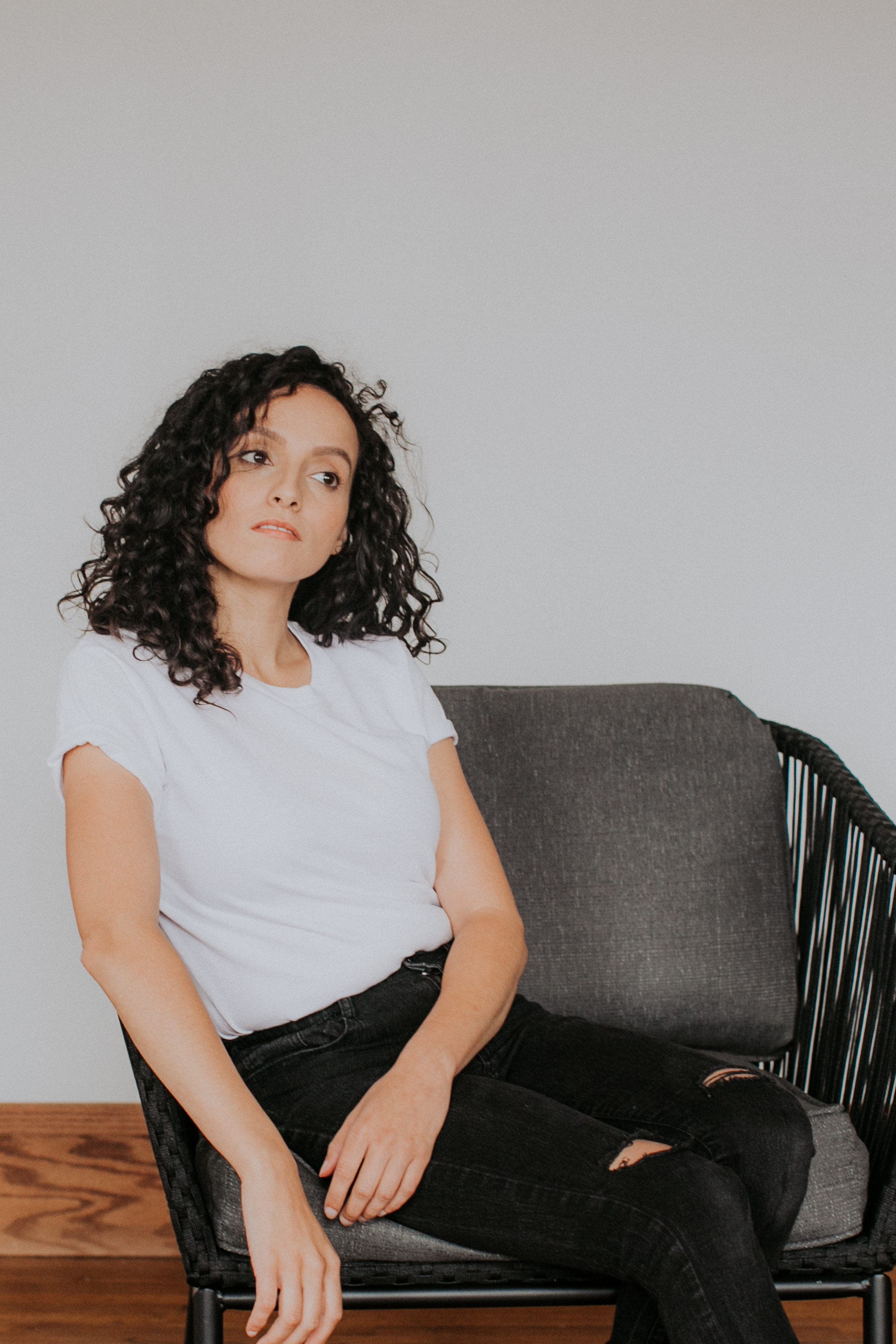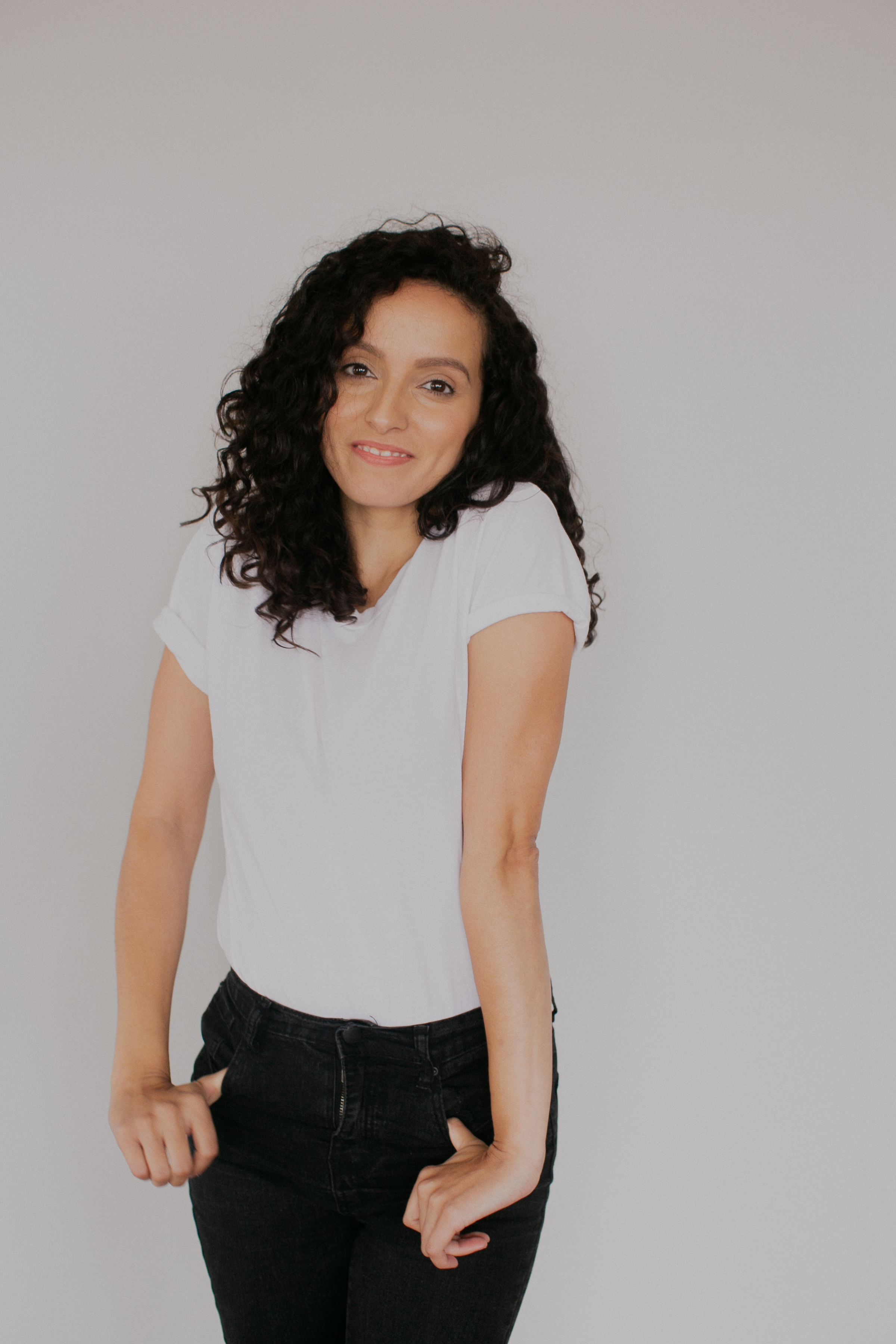What does being a Latina mean to you?:
Being Latina means being proud of my heritage. It means adding sofrito in even the non-latino recipes. It means imagining how the next American pop song on the radio would sound like in bachata, salsa or reggaeton. It means preferring my homemade Bustelo cafe con leche over the trendy coffee. It means yelling “OH MY GOD “ when I hear the song “Suavemente” get played at an event for the 1,000th time and I still get up and dance like it’s the first time. It means being able to recite some novela songs that my mom and aunts used to watch, like “Tres Mujeres Un Camino” or “Mari Mari Mar.” I love being a Latina.
Share a struggle you have faced being a Latina.:
Allow me to share a couple of struggles: As an urban Latina millennial, it’s hard to fit in. I’m too hipster for the Latinos too Latina for the hipsters. Also, I am currently going through a curly hair journey. Which means I am learning to take proper care of my curls and love them. And let’s be honest, the beauty market hasn’t always been curly hair friendly until recently, partially because curly hair is trending. There are more hair products available for eliminating curls. Since I was a child I was taught to hide my curls because they’re hard to manage. My mom put a relaxer in my hair at 13, just when my hair was getting more curly with puberty. She relaxes her hair. I don’t recall ever seeing my mom go outside with her curls. My maternal grandmother had beautiful curly hair but always styled it in a bun. I want to break the generational curse of anti-curl habits. Why? Because it is part of my families DNA, our heritage that continues to appear in every generation of my family. My curls represent my ethnic ancestry; Spanish, African and Taino. My daughters have curly to wavy hair and I want to make sure I teach them to maintain and love their natural hair.
Share something you love about being a Latina?:
I love being a Latina because I can communicate, connect and relate with other Latinos across Latin America. I love being a part of a passionate community with a rich and lively culture.
What do you identify as?: Puerto Rican
Where you born in the states? If not, could you share what your experience has been being an immigrant, and the process of becoming a US citizen, resident, etc. (Share only what you are comfortable with): Yes!
How have you been able to celebrate and honor your American nationality, while embracing your heritage and culture?:
I’ve had the honor to participate in many Puerto Rican cultural shows displaying dance, stories and music. I am currently acting in “There’s a Coqui in my Shoe” a theatrical adaptation based on an award winning children’s book. It will premiere at The Miracle Center during Hispanic Heritage month starting Sept. 21. Audiences will learn about the importance of the Coqui on the island, learn about different places and enjoy live music and dance. This show is extra special to me because I’m performing along side my husband, who plays Carlito the Coqui. My daughters, ages 1 and 4, get to see mommy and daddy perform and they will learn more about their heritage. I have also written poems and short stories about my experience living in the hills of Puerto Rico as a child, that I hope to have published someday. I’ve also taught and choreographed Plena, a Puerto Rican folkloric dance form, to younger generations.
Do you speak spanish?: Yes, somewhere in-between fluent, and broken.
Have you experienced colorism, or not being fully accepted by your community? Like you're too dark, or too white, etc. Please share anything you'd like to share!:
Growing up I was very insecure about myself. Living in a Latino community, curves and caramel skin are celebrated and if you have colored eyes it’s a major bonus, at least this was my perspective and experience. My thin physique, along with my “pale” skin, and European/Mediterranean features didn’t quite fit the Latina beauty ideal. People around me were always trying to over feed me. I experienced a lot of body shaming and still do. This led me to have an over eating disorder in my teens, not sure if there’s a proper term for it. I was obsessed with gaining weight.
As for my skin color, I always wanted to have my skin described as something delicious. Some Latinos describe skin color by food or sweets. We have “cafe con leche,” “caramelo” “chocolate” or what I was described as “Blanca,” which isn’t a food. One day a sweet friend of mine said “Your skin is like milk and honey.” YEESSS! I accept that! While living amongst a community with Latina beauty ideals, I also grew up watching shows like Full House and Alex Mack. All mainly Caucasian actors. I would’ve given anything to have blonde or red hair and colored eyes so I could fit into the American idea of beauty, and I sure tried and damaged my hair and probably my eyesight with those cheap colored contacts I used to buy from the Mega Mall as a teen. I wasn’t curvy enough, or blonde enough. The road to self acceptance has been long and painful. Unfortunately, it took years to come to the realization that I am beautiful as I am and that I am handcrafted beautifully by God.



